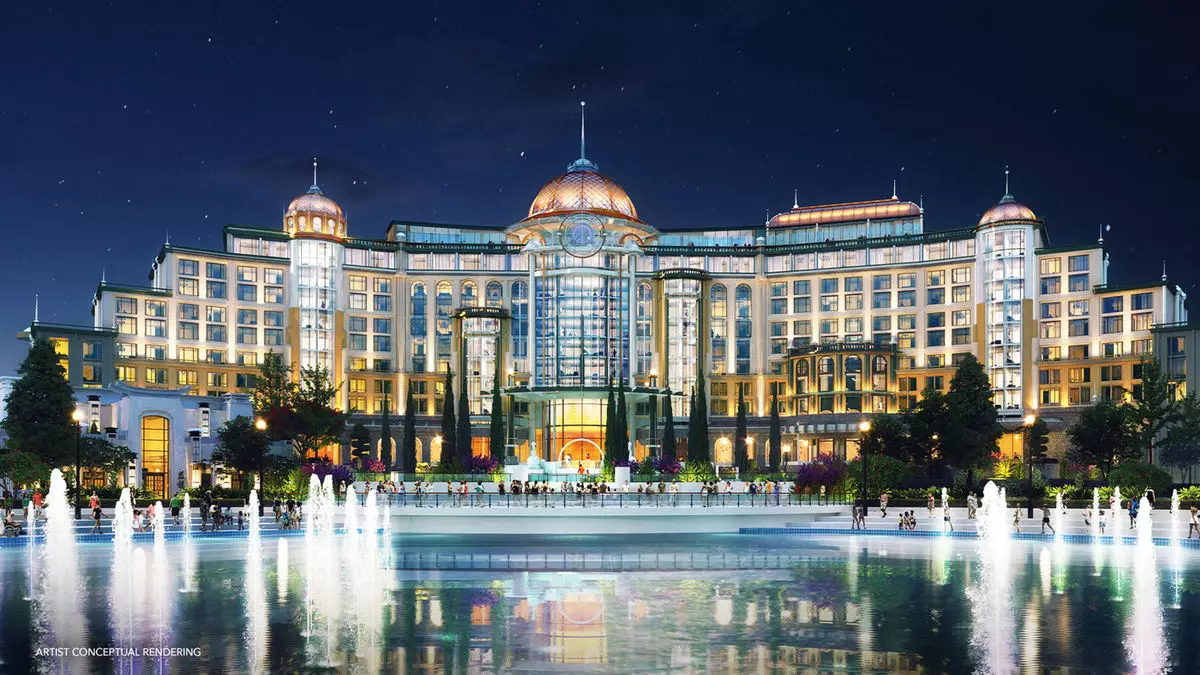Tourism in Orlando is revamping itself, embracing a broader array of attractions beyond its famed theme parks. While the city is poised to see a rise in international visitors, various factors hint at a return to a more stable, prepandemic travel landscape. The recent performance metrics of the hotel industry reflect these shifts, illustrating both challenges and opportunities ahead for one of the U.S.’s premier travel destinations.
Despite a projected increase in overall visitor numbers, some key indicators offer a glimpse into the shifting dynamics of Orlando’s tourism market. Visit Orlando reports that approximately 74 million visitors graced the city last year, with growth in international tourism significantly contributing to this figure. Notably, international arrivals rose by a remarkable 25% in 2023, reaching 6.1 million travelers. This surge compensates for a slight domestic decline, with a reported 2.4% drop in hotel occupancy and a 0.9% decline in demand for the year up to August.
The potential factors leading to this domestic downturn range from heightened international travel options post-pandemic to fluctuating consumer preferences. As Robert Agrusa from the Central Florida Hotel & Lodging Association noted, many travelers opted for international adventures, with Europe and cruise vacations capturing attention. This trend indicates a need for Orlando to reinforce its appeal by diversifying attractions beyond the traditional theme park offerings.
Looking towards the future, there’s an air of optimism surrounding the anticipated opening of Universal Orlando Resort’s third theme park, Epic Universe, set to welcome visitors in 2025. This major development promises to serve as a pivotal draw for tourists and is expected to solidify Orlando’s global standing as a premier travel destination. With over 50 attractions, dining options, and hospitality venues, including the Universal Helios Grand Hotel, Epic Universe has the potential to rejuvenate interest in the area, attracting both new visitors and returning tourists.
However, experts like Maria Henson from Visit Orlando caution against placing too much weight on potential visitation declines in anticipation of new openings. Historical data suggests that significant new attractions have consistently driven visitor numbers upward rather than delaying them. For those hesitant about the upcoming changes, the allure of Orlando’s assorted offerings persists, which can entice a varied visitor demographic.
Recognizing the growing trend of tourists seeking more diversified experiences, Visit Orlando is actively promoting its expanding repertoire of nature-focused and cultural attractions. Casandra Matej, the CEO of Visit Orlando, emphasizes the city’s offerings in ecotourism, which include kayaking and swimming with manatees. This push aims to reshape Orlando’s image from solely a theme park capital to a vibrant destination rich with outdoor adventures, appealing to families and individuals interested in natural experiences.
Moreover, the cultural aspects of Orlando are also gaining traction. The city boasts a burgeoning arts scene characterized by top-tier performances at venues like the Dr. Phillips Center for the Performing Arts. Productions that range from Broadway shows to the return of the Blue Man Group illustrate how Orlando is investing in cultural enrichment, which can enhance the traveler experience beyond what theme parks can offer.
Reports from travel advisors paint a picture of shifting consumer habits amongst families vacationing in Orlando. Many are moving away from the all-consuming theme park experience and are optting instead for more economical vacation rentals. This change is indicative of a broader desire to explore the myriad attractions waiting beyond the gates of famed theme parks. Notably, travel agents like Katie Coleman from SuperfamilyTravelistic have observed a trend among families looking for diverse experiences, from NBA games to visits to the Kennedy Space Center, diversifying their itineraries and focusing on local experiences that represent the essence of Orlando.
This evolution in travel preferences could dramatically impact how tourism stakeholders develop and market experiences. Rather than relying solely on the theme parks as the main attraction, there is momentum behind promoting an ecosystem of experiences centered around arts, culture, and nature.
Orlando is entering a dynamic phase in its tourism journey, shaped by evolving visitor preferences and significant new developments on the horizon. While challenges remain, the city’s emphasis on diversifying offerings beyond theme parks and an unwavering commitment to enhancing the visitor experience bodes well for its future. With attractions like the highly anticipated Epic Universe around the corner and an increasingly vibrant cultural scene, Orlando is poised to reshape its identity as a multifaceted travel destination, catering to travelers of all ages and interests. This ongoing transformation is an exciting testament to the city’s adaptability and potential going forward.


Leave a Reply